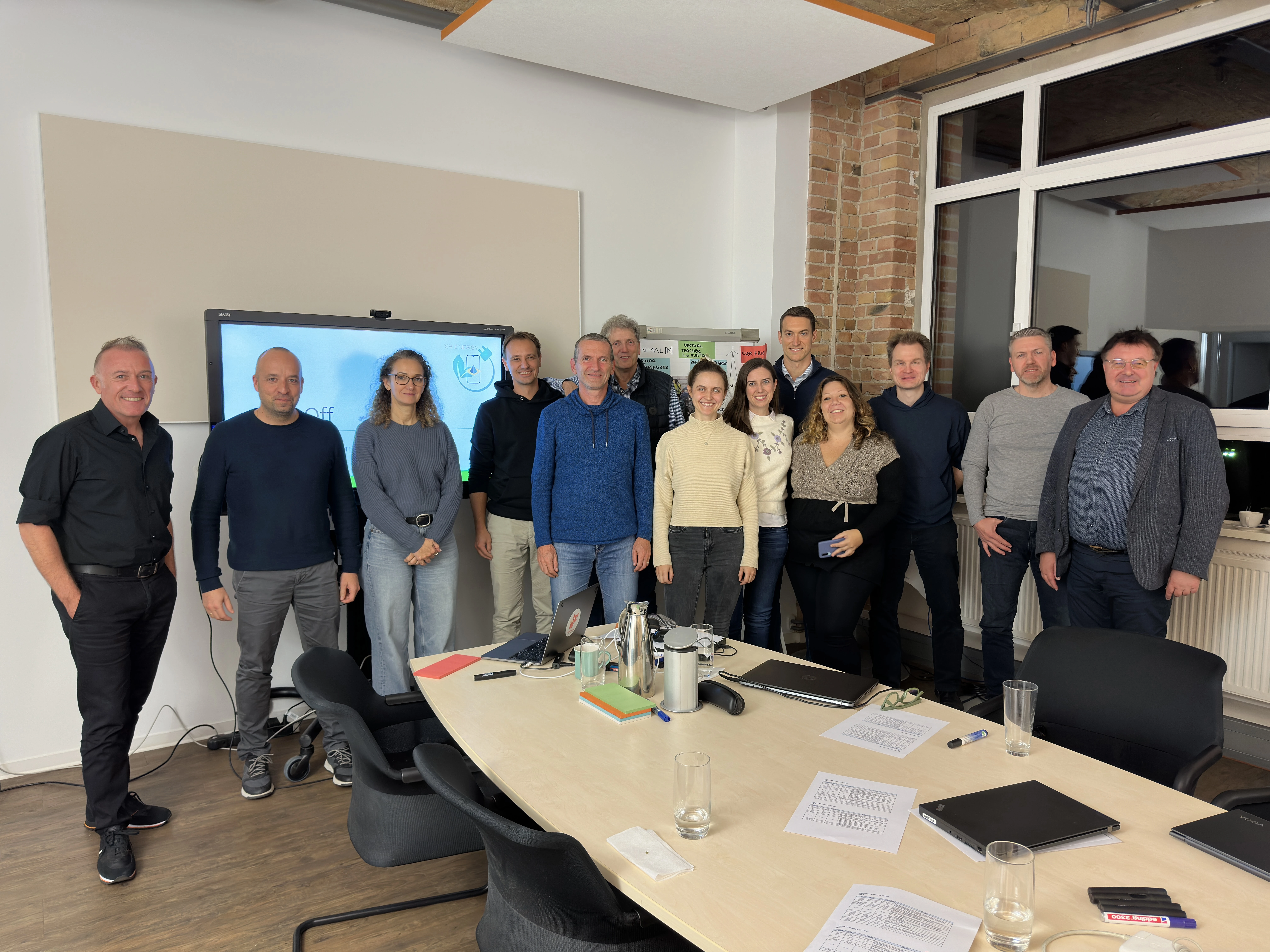XR Energy – Extended Reality for the Energy Transition
The energy transition and the development of a hydrogen economy require a transformation of the energy infrastructure and systems. This necessitates the construction, monitoring, management and optimization of complex systems to ensure a stable and reliable energy supply. A key problem facing the energy transition at present is the shortage of skilled workers, which is delaying the implementation of the necessary measures. Specialists who have to cope with these challenges need further training that not only presents complex devices, processes and courses of action in a comprehensible way, but can also be easily modified and further developed.
In recent years, augmented reality has proven helpful in representing complex and interconnected issues. However, the widespread introduction of such technologies is still in its infancy, partly because of the high initial costs, but mainly because of the lack of programming skills. Many SMEs and educational institutions lack the digital skills to create applications themselves and adapt them to the ever-faster pace of technological change in workflows and devices.
Previous XR projects have remained at the level of individual solutions that SMEs and educational institutions cannot design themselves. All new and further developments require many resources and the involvement of specialized software companies. What is needed, however, are flexibly designable and adaptable, dynamic digital learning units that clearly illustrate complex topics and processes.
Goals
The project will create XR learning units that...
- can be used in an action-oriented way for education and further training online, hybrid or in face-to-face events
- use extended reality where it is helpful to the learning objectives, but are not limited to that
- can be created, modified, and enhanced by instructors themselves using freely available programs and tools
- can be easily deployed on common learning platforms
Team
-
Dr. Jörg Longmuss
-
Claus Degendorfer
-
Frank Bertelmann
-
José Alberto Andrés Lacasta
-
Beatriz Gimeno Frontera
-
Roland Ruisz
-
Oliver Tacke

Partner
Funding notice
The project was made possible by an EU grant from the ERASMUS+ program for Strategic Partnerships and is accompanied by the National Agency Education for Europe at the Federal Institute for Vocational Education and Training in Germany.
The European Commission support for the production of this publication does not constitute an endorsement of the contents which reflects the views only of the authors, and the Commission cannot be held responsible for any use which may be made of the information contained therein.
Unless explicitly stated otherwise, all materials published as part of the project are licensed under the following license:






